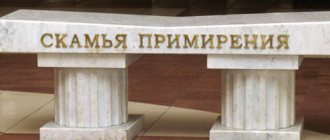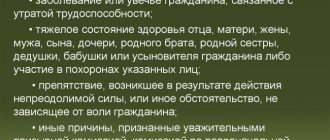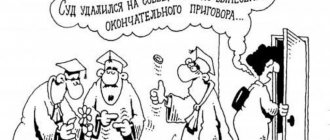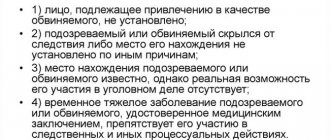Article 228 of the Criminal Code of the Russian Federation
The circulation of narcotic and psychotropic drugs, preparations and plants containing relevant substances is under special control in the legislation of all countries of the world. In Russia, the fundamentals of state policy in the field of trafficking in drugs and similar substances are regulated by Federal Law No. 3, as amended on July 26, 2019. The document establishes a complete state monopoly on the production, research activities, production and distribution of narcotic plants and drugs, as well as a list of substances under special control. Any participation in the trafficking of narcotic substances that is not authorized by the state is illegal and is subject to one form of liability or another.
The rules cover all possible violations, from storage of prohibited substances to illegal production and issuance of fictitious prescriptions for the purchase of narcotic drugs. Most criminal provisions are aimed at bringing to justice drug traffickers who use the addiction of clients to obtain profit, but the first of these articles implies liability directly for citizens who are not related to the sale. Thus, the following articles are subject to sanctions:
- purchase, receiving as a gift or self-production;
- cultivation and processing of relevant plants;
- transportation and storage.
At the same time, a citizen will be exempt from criminal liability if he voluntarily surrenders prohibited substances to the police and helps law enforcement officers in solving and suppressing similar or more serious crimes in the field of drug trafficking. In order to avoid punishment, you should begin to cooperate with the investigation and hand over stored drugs before the drugs are seized as part of investigative measures.
Criminal penalties for illegal drug trafficking
When determining liability under Article 228 of the Criminal Code of the Russian Federation, the key factor is the amount of drugs identified by law enforcement officers from the person involved. Government Decree No. 1002 (last amended on December 19, 2018) establishes the amount of a particular narcotic or psychotropic substance, which is classified as:
- significant;
- large;
- especially large.
Part 1 of this article provides for sanctions for possession of a significant amount of drugs in the form of a fine of up to 40 thousand rubles, compulsory or correctional labor, restriction or imprisonment for up to 3 years.
Under Part 2, for storing or transporting a large shipment, the defendant faces up to 10 years in prison with a fine of up to half a million rubles. For a particularly large amount, the term increases to 15 years, also with the possible simultaneous collection of a half-million fine.
If a citizen is found to be a drug addict, the court may, along with the punishment for the crime committed, impose mandatory treatment and rehabilitation on the convicted person.
Protection under 228 of the Criminal Code of the Russian Federation
March 04, 2015 P R I G O V O R
In the name of the Russian Federation
Tyumen city March 04, 2015
Central District Court of Tyumen, consisting of:
presiding judge – judge S.V. Romanova,
with the participation of: public prosecutor - senior assistant prosecutor of the Central Autonomous District of Tyumen Pashchenko A.F.,
defendant "full name"
defender - lawyer of the Tyumen Interregional Bar Association R.D. Ospanov, acting on the basis of warrant No. dated DD.MM.YYYY
under the secretary Koshkarova-Plokhova M.Yu.,
having examined in open court in a special judicial procedure criminal case No. in relation to:
LAKHTINA A.S., <data taken>
accused of committing a crime under Part 2 of Art. 228 of the Criminal Code of the Russian Federation (hereinafter referred to as the Criminal Code of the Russian Federation),
U S T A N O V I L:
“Full name” made an illegal acquisition without the purpose of selling narcotic drugs, committed on a large scale, under the following circumstances.
DD.MM.YYYY about <data taken> “Full name”, being at a distance of 2 meters from the entrance No. <address>, acting intentionally, without the purpose of sale, for the purpose of personal consumption, illegally acquired from a person unidentified by the investigation a substance containing derivative N-(1-carbamoyl-2-methylpropyl)-1-pentyl-1Nindazole-3-carboxamide, related to narcotic drugs weighing 1.9124 grams, which according to the Decree of the Government of the Russian Federation dated October 1, 2012 No. 1002 “On approval of significant, large and especially large sizes of narcotic drugs and psychotropic substances, as well as large and especially large sizes for plants containing narcotic drugs or psychotropic substances, or their parts containing narcotic drugs or psychotropic substances, for the purposes of Articles 228, 228.1, 229 and 229.1 of the Criminal Code Code of the Russian Federation", is large in size.
DD.MM.YYYY in <data taken> “Full name” was detained by police officers near the entrance No. <address>, where in the period of time from <data taken> minutes during an inspection of the scene near the curb located at the entrance No. < address> a substance purchased by “Full Name” was discovered and seized, containing a derivative of N-(1-carbamoyl-2-methylpropyl)-1-pentyl-1Nindazole-3-carboxamide, related to narcotic drugs, weighing 1.9124 grams , which is a large size.
At the court hearing, the defendant “Full Name” supported the petition he made when familiarizing himself with the materials of the criminal case for a special procedure for the trial, explaining that he agreed with the charges brought against him, admitted his guilt in full, was aware of the nature and consequences of his petition, this petition was his declared voluntarily and after consultation with a defense lawyer.
The punishment provided for in Part 2 of Art. 228 of the Criminal Code of the Russian Federation, does not exceed 10 years of imprisonment.
The defendant’s above-mentioned request for a verdict without a trial, taking into account the opinions of the public prosecutor and defense attorney, was granted.
The court comes to the conclusion that the accusation agreed with by the defendant is justified and supported by evidence collected in the criminal case.
The court qualifies the actions of the defendant “full name” under Part 2 of Art. 228 of the Criminal Code of the Russian Federation as an illegal acquisition without the purpose of selling narcotic drugs, committed on a large scale.
When assigning punishment, determining the type and measure of punishment for the defendant, the court takes into account the nature and degree of public danger of the crime committed, which, in accordance with Part 4 of Art. 15 of the Criminal Code of the Russian Federation belongs to the category of serious crimes, the identity of the defendant, <data seized>.
Circumstances mitigating the punishment “full name”, according to Part 2 of Art. 61 of the Criminal Code of the Russian Federation, the court recognizes his admission of guilt, sincere repentance for his deeds, <data taken>
Circumstances aggravating the punishment “Full name”, according to Art. 63 of the Criminal Code of the Russian Federation was not established by the court.
Taking into account all the circumstances of the case, the impact of the imposed punishment on the correction of the convicted person and on the living conditions of his family, data on the personality of the defendant, the court considers it necessary to assign to the defendant “full name” a sentence of imprisonment, which will be fair and will serve the correction of the convicted person and prevent him from committing new crimes.
When determining the term of punishment, the court is guided by Part 5 of Art. 62 of the Criminal Code of the Russian Federation, since the criminal case was considered in a special manner.
Taking into account the nature and degree of public danger of the crime committed, the personality of the defendant, the presence of mitigating and absence of aggravating circumstances, the court believes that the correction of the defendant can be achieved by assigning him a suspended sentence, in accordance with Art. 73 of the Criminal Code of the Russian Federation, with a probationary period during which the “full name” must prove correction by his behavior, and the assignment of responsibilities that will contribute to his correction.
Taking into account the living conditions of the defendant’s family, his property and financial situation, as well as the sufficiency of the punishment in the form of imprisonment to correct the defendant, the court considers it possible not to impose an additional punishment in the form of a fine and restriction of freedom.
At the court hearing, exceptional circumstances related to the goals and motives of the crime, which significantly reduce the degree of public danger of the crime committed by the defendant, were not established, and therefore, the grounds for applying Art. 64 of the Criminal Code of the Russian Federation the court does not see.
Also, taking into account the actual circumstances of the crime and the degree of its public danger, the personality of the defendant, the court considers it impossible to change the category of the crime to a less serious one in accordance with Part 6 of Art. 15 of the Criminal Code of the Russian Federation.
No civil claim has been filed.
The issue of material evidence is subject to resolution in the manner established by paragraphs. 2, 6 hours 3 tbsp. 81 Code of Criminal Procedure of the Russian Federation.
There are no procedural costs.
Based on the above, guided by Article 316 of the Code of Criminal Procedure of the Russian Federation, the court –
PRI G O V O R I L:
“Full name” is found guilty of committing a crime under Part 2 of Art. 228 of the Criminal Code of the Russian Federation and sentence him to imprisonment for a term of 3 (three) years, without a fine and without restriction of freedom.
In accordance with Part 1 1-3 tbsp. 73 of the Criminal Code of the Russian Federation, the imposed punishment is considered suspended with a probationary period of 3 (three) years.
Based on Part 5 of Art. 73 of the Criminal Code of the Russian Federation, assign to the “Full Name” the following obligations: not to change permanent place of residence and work without notifying the specialized state body that monitors the behavior of the conditionally convicted person, to appear for registration with this body once a month, on the days specified by it, not to leave from your permanent place of residence from 22:00 to 06:00 the next day, if this is not related to work, consult a narcologist within one month and, if necessary, undergo a course of treatment for drug addiction.
The preventive measure “full name”, a written undertaking not to leave the place and proper behavior until the sentence enters into legal force, shall be left unchanged.
No civil claim has been filed.
There are no procedural costs in the case.
Material evidence in the case: <data seized>.
The verdict can be appealed within 10 days from the date of its proclamation to the Judicial Collegium for Criminal Cases of the Tyumen Regional Court, by filing an appeal or submission through the Central District Court of Tyumen.
The verdict cannot be appealed on appeal on the grounds provided for in paragraph 1 of Art. 389.15 Code of Criminal Procedure of the Russian Federation.
If an appeal is filed, the convicted person has the right to petition for his participation in the consideration of the criminal case by the appellate court, which he must indicate in his complaint.
Chairman S.V. Romanov
Amendments and changes under Art. 228 of the Criminal Code of the Russian Federation in 2021
In recent years, there has been an active discussion in the media and socio-political circles about the need to revise legislation in the field of drug trafficking. Supporters of the liberalization of this norm argue their position by the fact that the article is aimed at those who stored drugs for personal use, that is, did not contribute to the spread of drug addiction, and severe punishment makes it difficult for the convicted person to return to normal life. In particular, it is proposed to re-evaluate Part 2 of this article from a serious crime to a medium crime, to specify the list of substances and preparations for the purchase and possession of which there is a criminal penalty, and to introduce the concept of mixtures.
Another reason for discussion are high-profile cases when, under Article 228 of the Criminal Code, the purchase abroad of drugs that are not included in domestic registers is qualified. Formally, such actions fall under the current edition of the Code, but in practice we are not talking about drug addiction or other socially condemned actions. For example, in August 2021, security forces detained a woman purchasing an anticonvulsant drug that had no Russian analogues abroad for a child with epilepsy.
The likelihood that certain amendments to Article 228 will come into force in 2021 is not great.
At the same time, at the end of 2021, amendments were made to Article 80 of the Criminal Code, which make it possible to replace part of the prison term with forced labor after serving:
- a third or a quarter of the assigned term, if the crime is classified as minor or moderate (for example, under Part 1 of Article 228);
- half the sentence if the blunting is classified as severe.
Administrative punishment
In the case where the person involved is not involved in the distribution of narcotic drugs, and the seized amount of prohibited substances does not meet the established criteria of a “significant” or “large” volume, the citizen is brought to administrative responsibility.
For storage, production or transportation of drugs, psychotropic drugs or narcotic plants, Article 6.8 of the Code of Administrative Offenses of the Russian Federation provides for punishment for citizens in the form of:
- a fine of 4-5 thousand rubles;
- arrest for up to 15 days.
If the offense is committed by a foreigner or stateless person, the sanctions will be supplemented by deportation from the country.
As under Article 228 of the Criminal Code of the Russian Federation, voluntary surrender of drugs to law enforcement agencies exempts a citizen from liability.
Responsibility for drug sales
Sale is the transfer of narcotic substances to another person, both for compensation and gratuitously, including for storage. Intent to commit a crime will be considered the manufacture, acquisition, packaging, transportation of narcotic substances by a person who does not use drugs (transporting drugs across the border is considered smuggling of potent substances - details here). Responsibility under this article begins at the age of 16. Responsibility will be borne by persons involved in the distribution of not only drugs, but also drug-containing drugs, narcotic plants, from which drugs can be extracted through processing.
The maximum penalty for drug distribution under the first part of Article 228.1 is from 4 to 8 years in prison. According to this part, the crime is qualified if there are no aggravating circumstances listed in subsequent parts of the article.
Watch in the video how a family of 11 people were convicted of illegal drug sales
According to Part 2 of Article 228. The Criminal Code of the Russian Federation classifies a crime committed in public places, schools, train stations, as the transfer of drugs to pre-trial detention centers and colonies. This also includes the sale of drugs through the media and the Internet. The term of imprisonment ranges from 5 to 12 years, the offender can be fined 500 thousand rubles, or the average monthly income for 3 years, in addition to restriction of freedom for a period of 1 year.
Part three of the article for drug trafficking states: if there were several accomplices in the crime, or a significant batch of drugs was sold, then the maximum sentence for a group crime is from 8 to 15 years, with or without a fine of up to half a million and restriction of freedom for 2 years.
It is worth noting: you can get a prison sentence of 1 to 7 years without even distributing narcotic substances, but only by providing premises for a drug den. In the article https://lexconsult.online/6430-tyuremnoe-zaklyuchenie-za-soderzhanie-narkopritona you can find more detailed information about the responsibility for organizing a den for drug addicts.
If the crimes provided for in parts 1 to 3 of Article 228.1 were committed:
- organized group;
- a person in case of abuse of official position;
- adults in relation to a person under 18 years of age;
- on a large scale; —
the term of imprisonment will be from 10 to 20 years and/or with a ban on holding certain positions for a period of up to 20 years. The amount of the fine increases to 1 million rubles or the average monthly earnings of the offender for 5 years.
Persons detained for selling drugs on an especially large scale under Part 5 of Art. 228.1 of the Criminal Code of the Russian Federation will be prosecuted with imprisonment from 10 to 20 years or life. Penalties are identical to Part 4 of this article. There is deprivation of the right to engage in certain types of activities and hold responsible positions.
The methods of distribution of narcotic substances and punishment for these crimes will be discussed in the following video.
How to get the minimum punishment under Art. 228 of the Criminal Code of the Russian Federation
The parts of Article 228 have different gravity from the point of view of the law, so a citizen will need a qualified lawyer who can seek charges under part 1. It is also necessary to pay attention to whether the seizure of prohibited substances was documented correctly - whether a protocol was drawn up, whether witnesses participated in the seizure itself. If procedural requirements were violated, the actions of the police officers can be challenged.
If a citizen is brought to criminal responsibility for the first time, the following may help mitigate the punishment:
- positive characteristics from the place of work or study, from neighbors and the local police officer at the place of residence;
- certificates, diplomas, data on participation in scientific, creative or sports competitions;
- documents on the presence of chronic or quite severe diseases;
- information about dependents, minor children, elderly relatives and others in the care of the person involved.
The most significant mitigating circumstance will be a confession, that is, an admission of guilt and repentance of the offender, as well as a willingness to cooperate with the investigation.
Arbitrage practice
Let's consider how many years they give for drug distribution, based on judicial practice.
Citizen F., was previously convicted under Art. 228.1 part 1 and article 228 part 5 for distribution of the narcotic mixture methadone in the amount of 0.108 g. Such a batch is considered especially large. The regional court of the Leningrad region sentenced citizen F. to 14 years in a maximum security colony. Citizen F. appealed the verdict, citing difficult life circumstances. The Supreme Court of the Russian Federation left the decision unchanged, since when pronouncing the sentence, the Leningrad Regional Court took into account mitigating circumstances, positive characteristics, the fact that the crime was committed for the first time, and applied Art. 64 of the Criminal Code of the Russian Federation, imposing a punishment below the lower limit of Part 5 of Art. 228.1 of the Criminal Code of the Russian Federation.
If you still have questions about punishment for drug sales, ask them in the comments to the article
Parole (parole) when setting a term
Those convicted of drug offenses have the opportunity to be released from prison early. The parole rules are regulated by Article 79 of the Criminal Code of the Russian Federation, allowing those who have served at least:
- a third of the term under Part 1 of Article 228, since the norm does not apply to serious crimes;
- 75% of the sentence for parts 2 and 3, since these crimes are classified as serious in the field of drug trafficking;
- 2/3 of the term, if the citizen has previously used the right to parole, but committed a crime or offense before the end of the previous sentence.
In addition, those convicted under the first part have the right to recalculate the remaining sentence in accordance with Article 72 of the Criminal Code of the Russian Federation. The current version allows each day spent under house arrest to be counted as half a day in the period of pre-trial detention or in the term of the sentence itself.
The period of stay in a pre-trial detention center awaiting trial is counted:
- day after day, if the sentence is served in a prison or penal colony of strict or special regime;
- as 1.5 days per day when serving a sentence in an educational or correctional colony of general regime;
- 1 to 2 when serving a sentence in a penal colony.
When deciding to serve the remainder of the sentence on probation, the court imposes additional obligations on the convicted person - not to change the address without notifying the supervisory authorities, to get a job or continue education, and to undergo a course of treatment.
How to receive a suspended sentence under Part 2 of Article 228 of the Criminal Code of the Russian Federation
If the applicability of a suspended sentence using Article 73 of the Criminal Code of the Russian Federation according to Part 1 of Article 228 of the Criminal Code of the Russian Federation does not actually cause controversy, because there, without the presence of a relapse of the crime or the absence of a previously imposed suspended sentence, the courts impose a suspended sentence or a fine without the virtuoso work of a lawyer, then according to Part 2 of Article 228 of the Criminal Code of the Russian Federation, everything is not so simple.
So, article 73. Conditional sentence.
1. If, having imposed correctional labor, restrictions on military service, detention in a disciplinary military unit or imprisonment for a term of up to eight years, the court comes to the conclusion that it is possible to correct the convicted person without actually serving the sentence, it decides to consider the imposed punishment suspended.
A conditional sentence is not imposed when a serious or especially serious crime is committed during the probationary period, with a conditional sentence imposed for committing an intentional crime, or during the unserved part of the sentence imposed for committing an intentional crime, with conditional early release; in case of a dangerous or especially dangerous relapse.
2. When assigning a suspended sentence, the court takes into account the nature and degree of social danger of the crime committed, the identity of the perpetrator, including mitigating and aggravating circumstances.
3. When assigning a conditional sentence, the court establishes a probationary period during which the conditionally convicted person must prove his correction by his behavior. In case of imposition of imprisonment for a term of up to one year or a more lenient type of punishment, the probationary period must be no less than six months and no more than three years, and in case of imposition of imprisonment for a term of more than one year - no less than six months and no more than five years . The probationary period is calculated from the moment the sentence enters into legal force. The probationary period includes the time elapsed from the date of pronouncement of the sentence.
4. In the event of a suspended sentence, additional types of punishment may also be imposed.
5. The court, when assigning a conditional sentence, imposes on the conditionally convicted person, taking into account his age, ability to work and state of health, the performance of certain duties: not to change his permanent place of residence, work, study without notifying the specialized state body that monitors the behavior of the conditionally convicted person, not to visit certain places, undergo treatment for alcoholism, drug addiction, substance abuse or sexually transmitted diseases, work (get a job) or continue studying in a general education organization. The court may impose on the conditionally convicted person the performance of other duties that contribute to his correction.
6. Control over the behavior of a conditionally convicted person is carried out by an authorized specialized state body, and in relation to military personnel - by the command of military units and institutions.
7. During the probationary period, the court, upon the proposal of the body exercising control over the behavior of the conditionally convicted person, may cancel in whole or in part or supplement the duties previously established for the conditionally convicted person.
All points of this article are quite feasible and are aimed at giving the person who has stumbled a chance for correction, taking into account that his stay in freedom will be more useful for himself and his loved ones, so as not to worsen his situation, the situation of his family and to protect the interests states.









